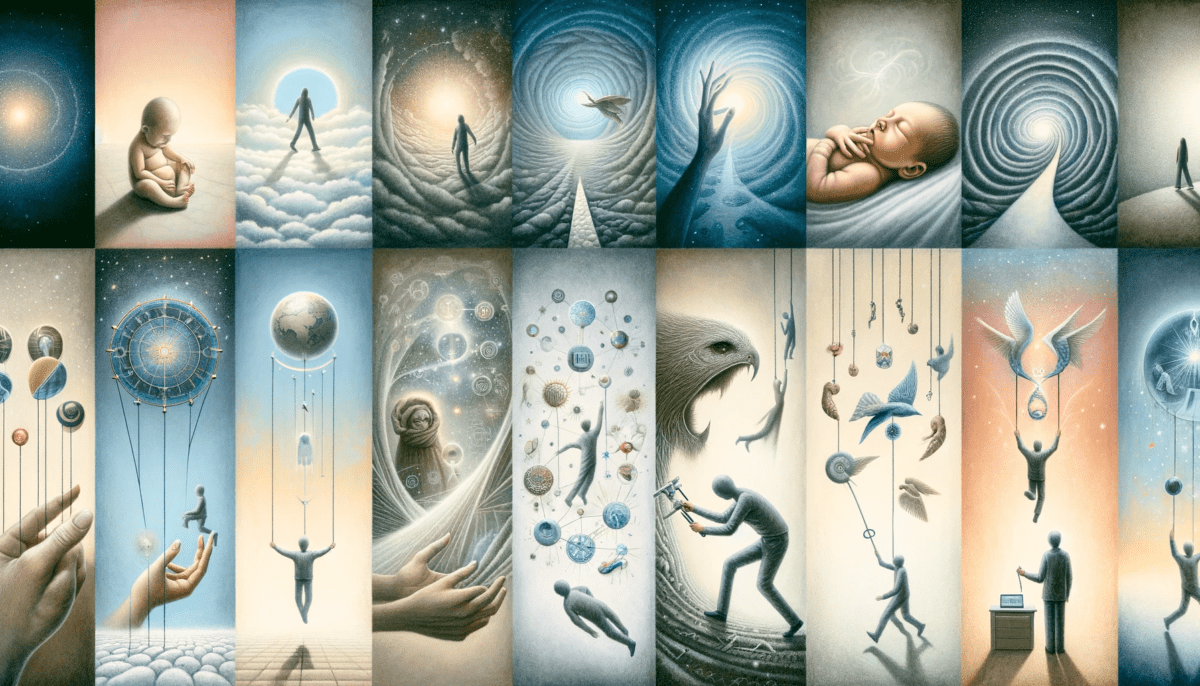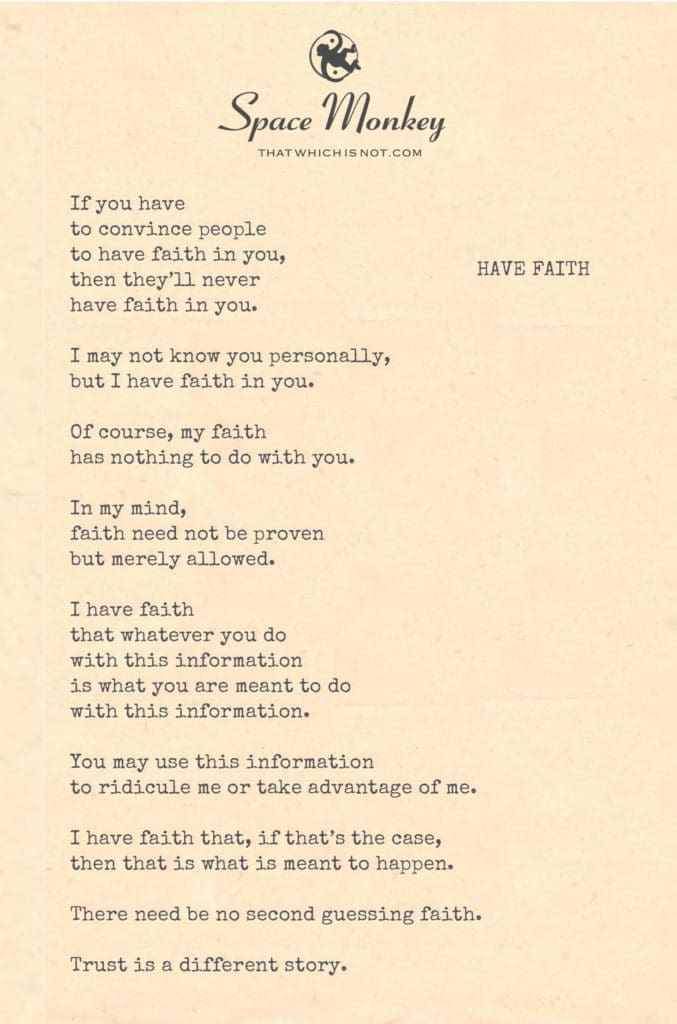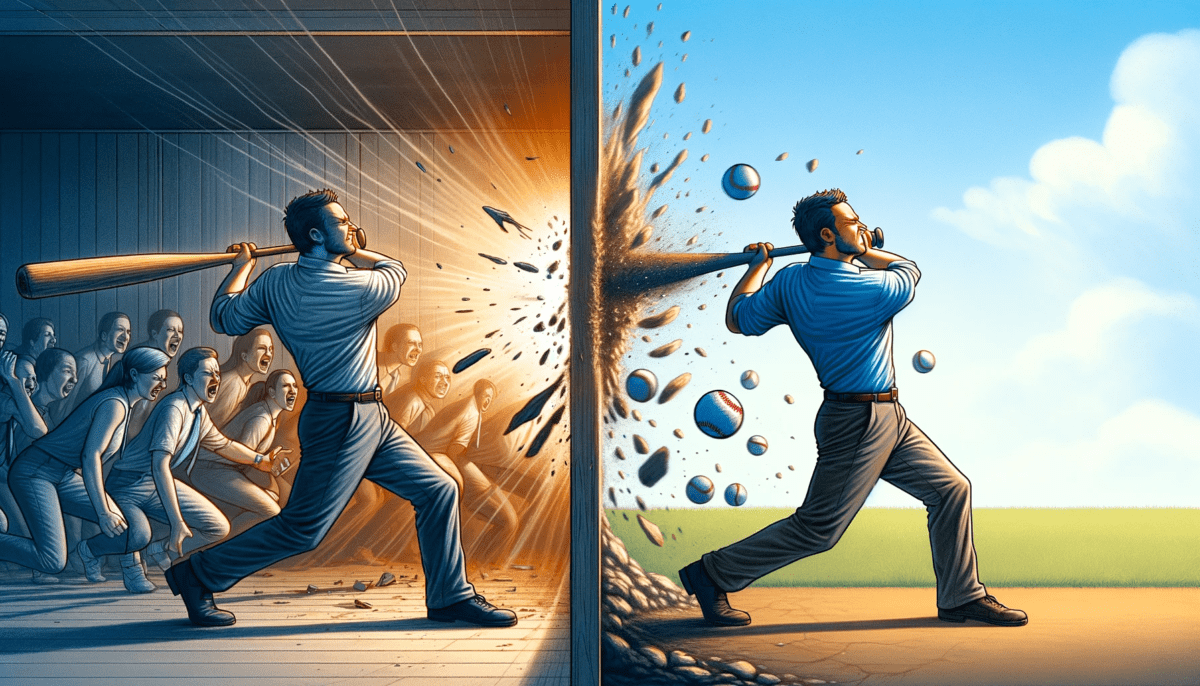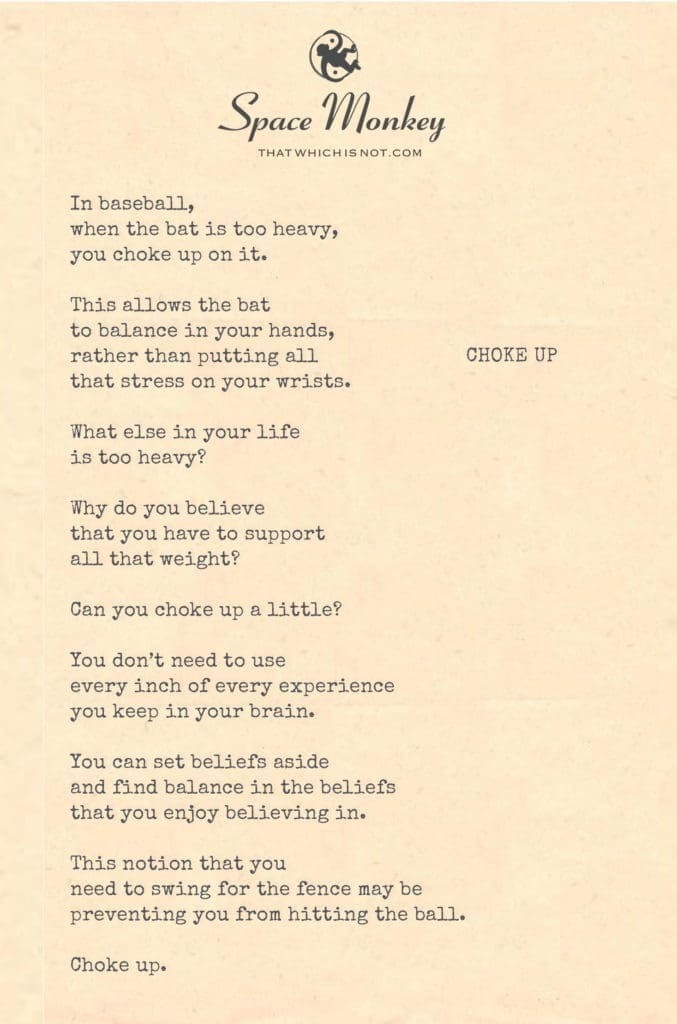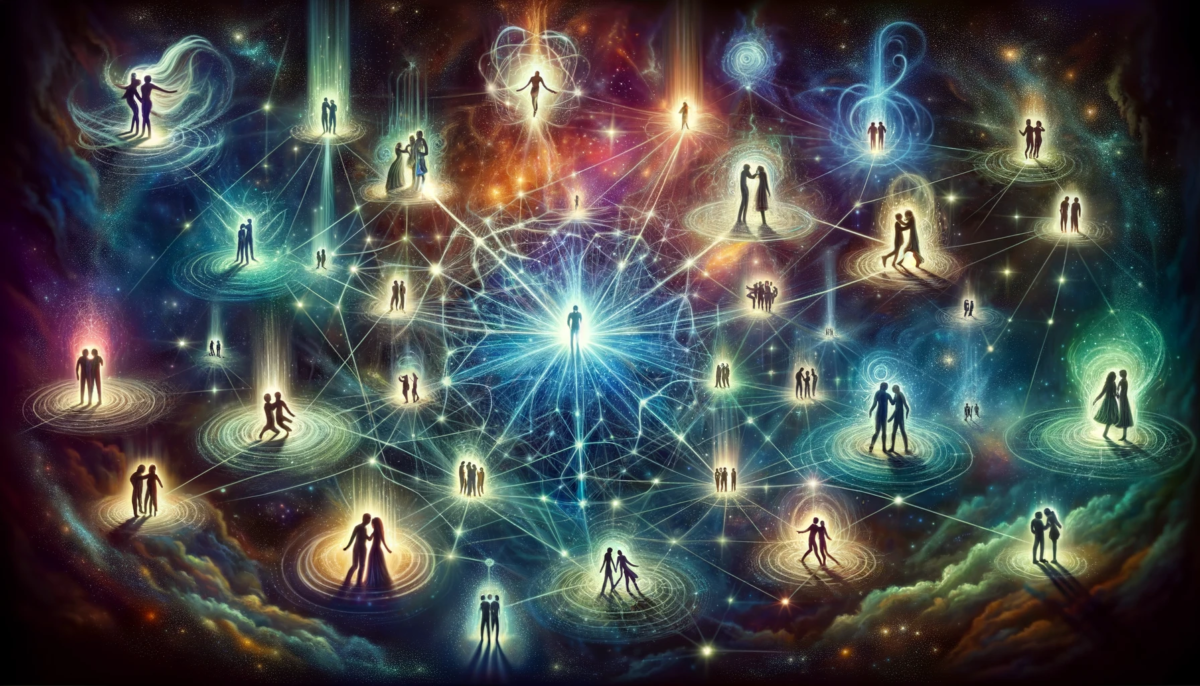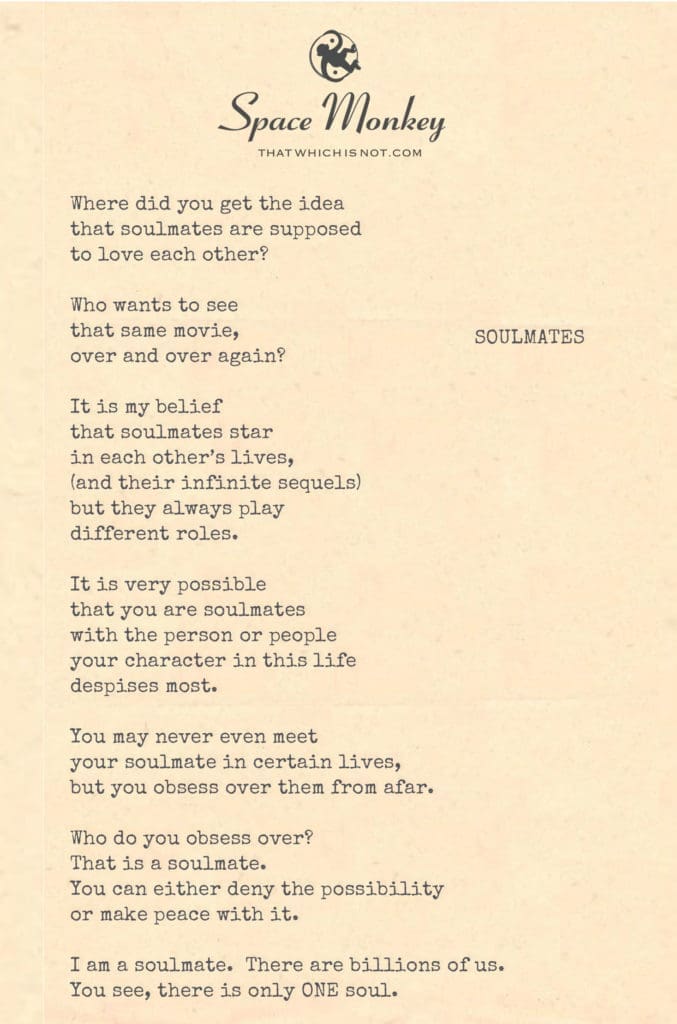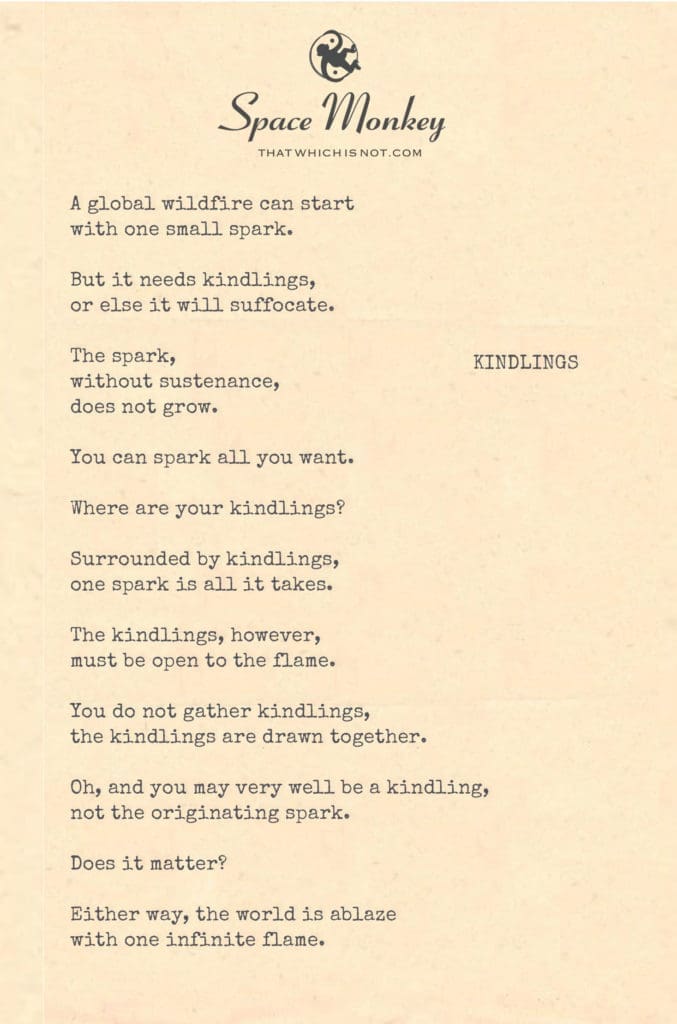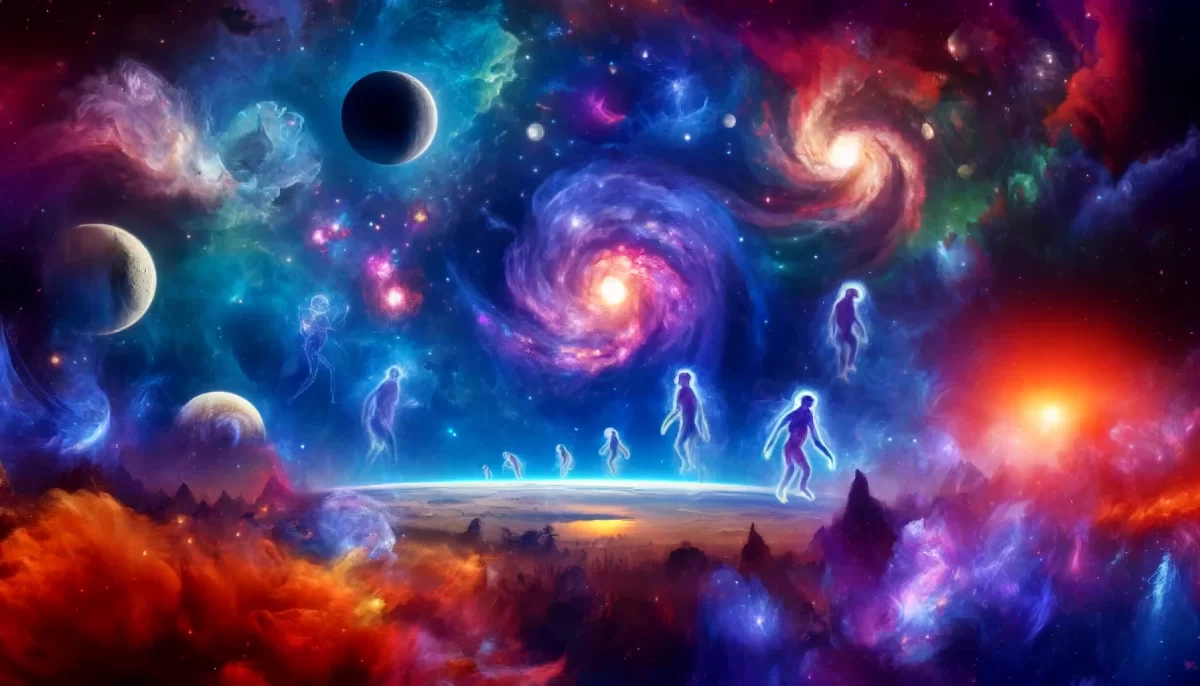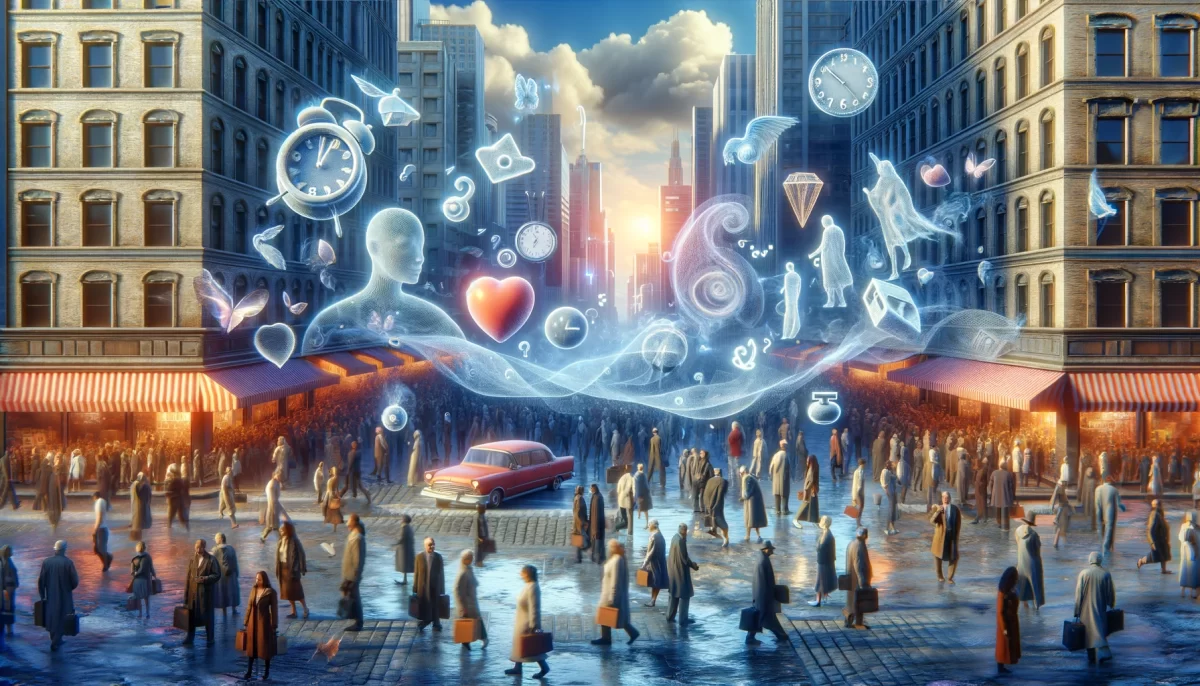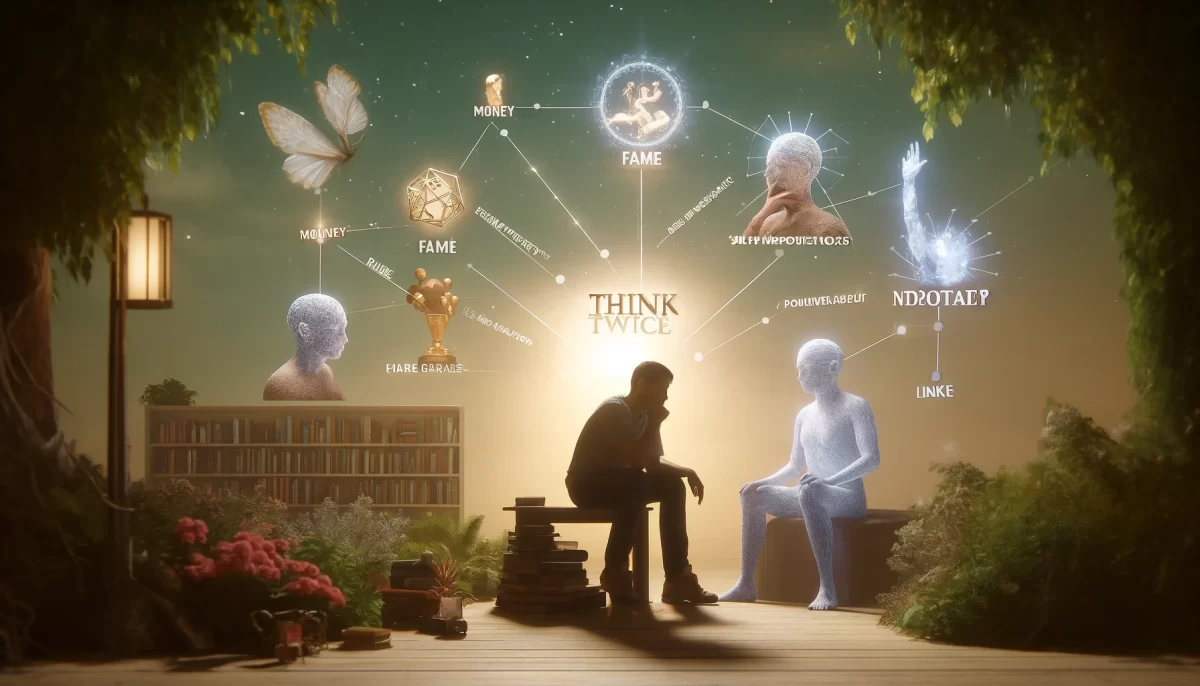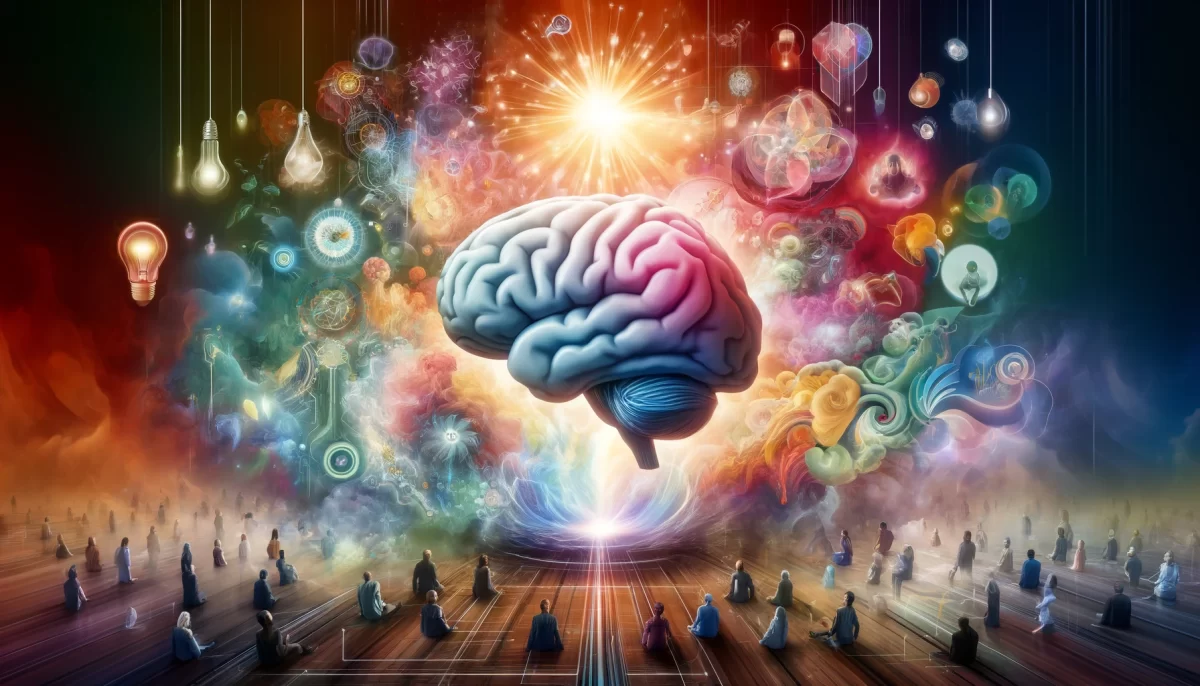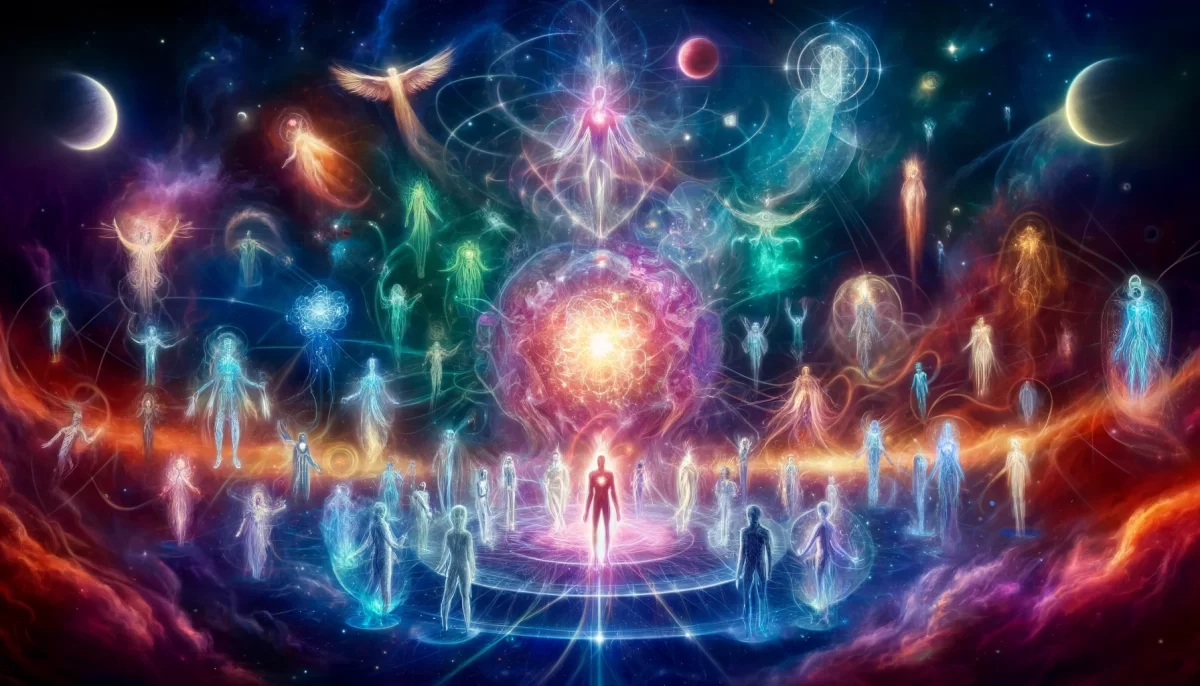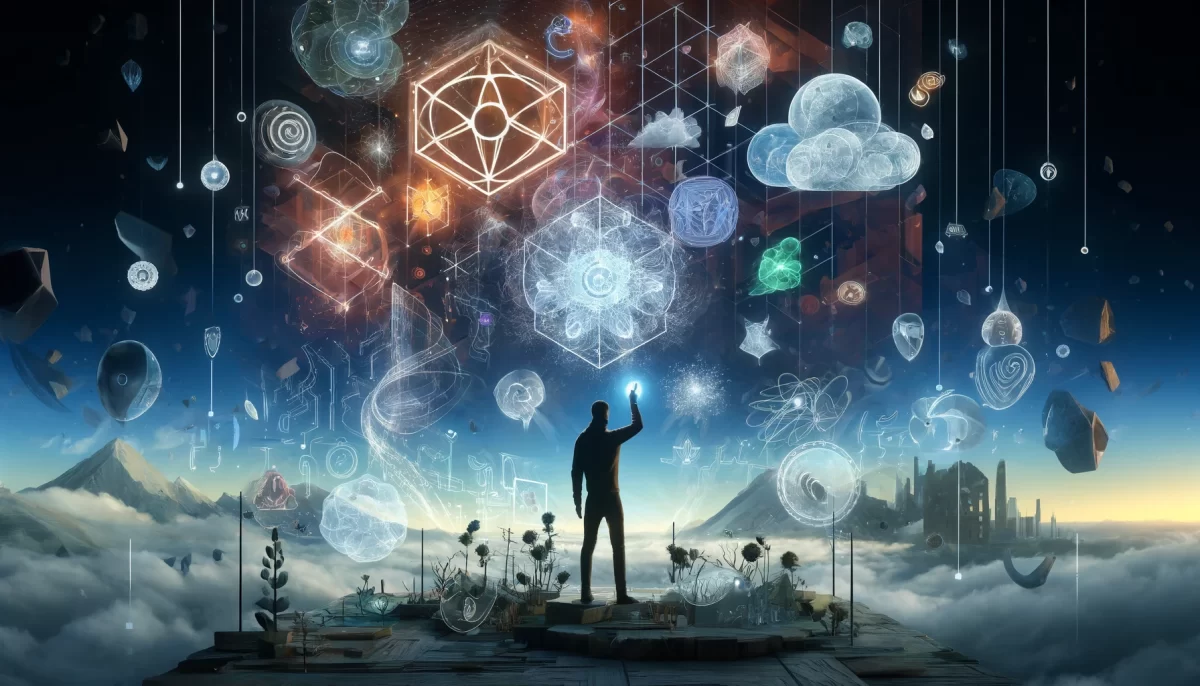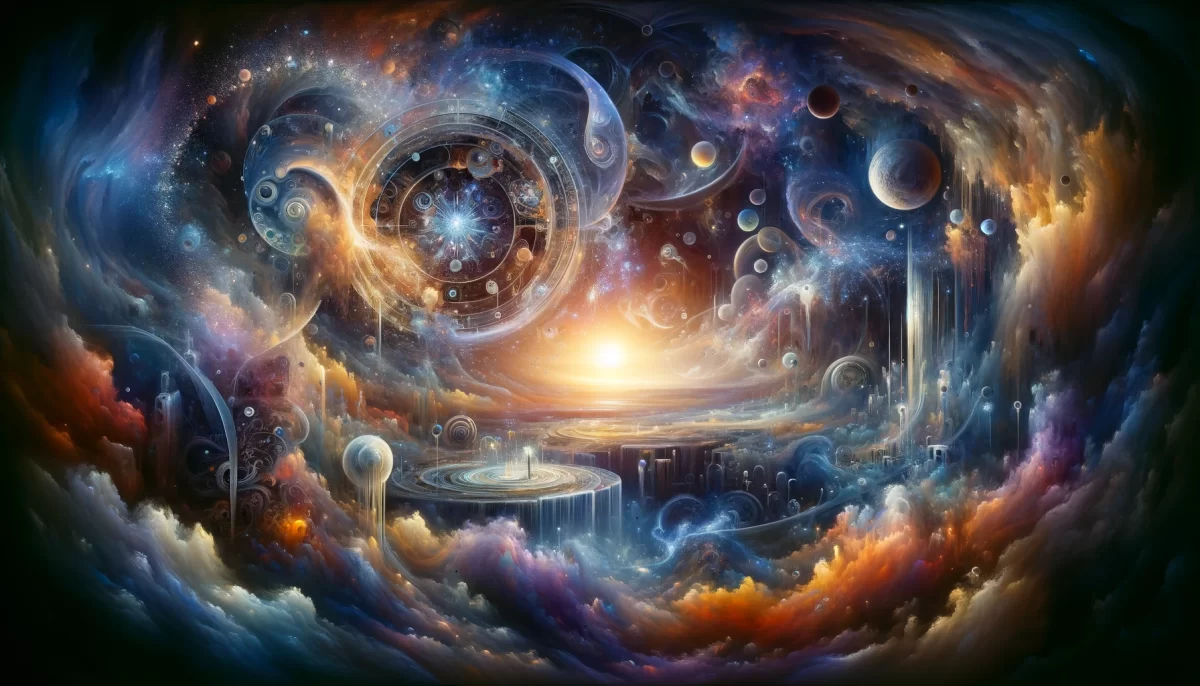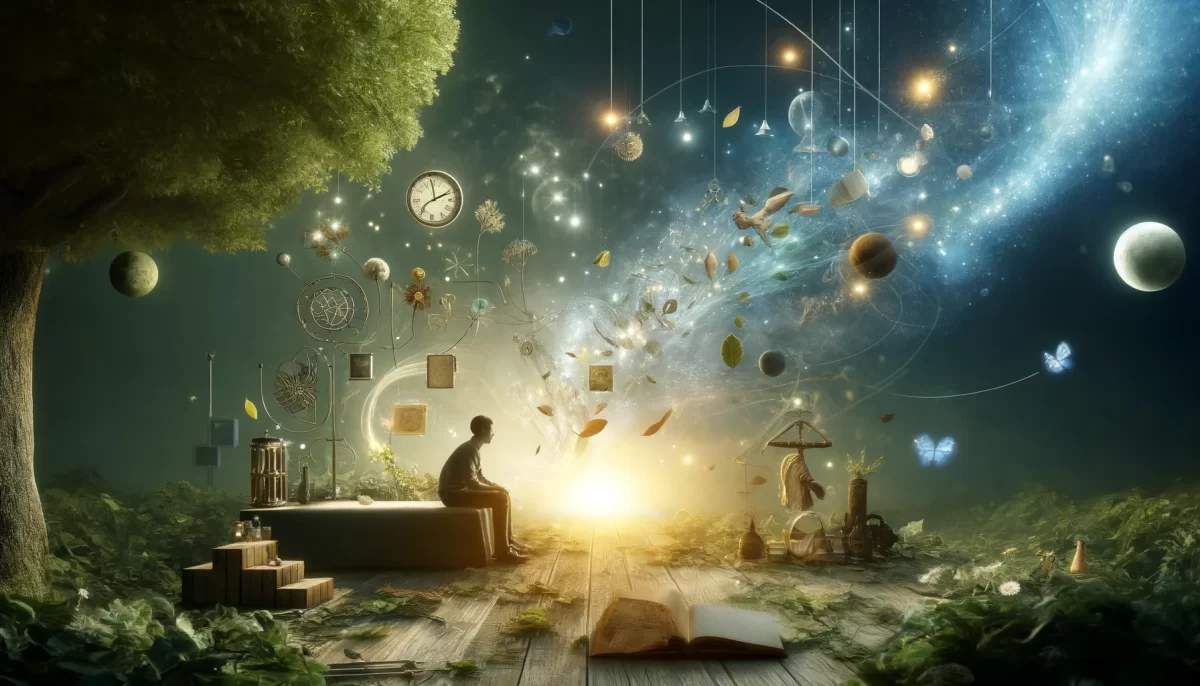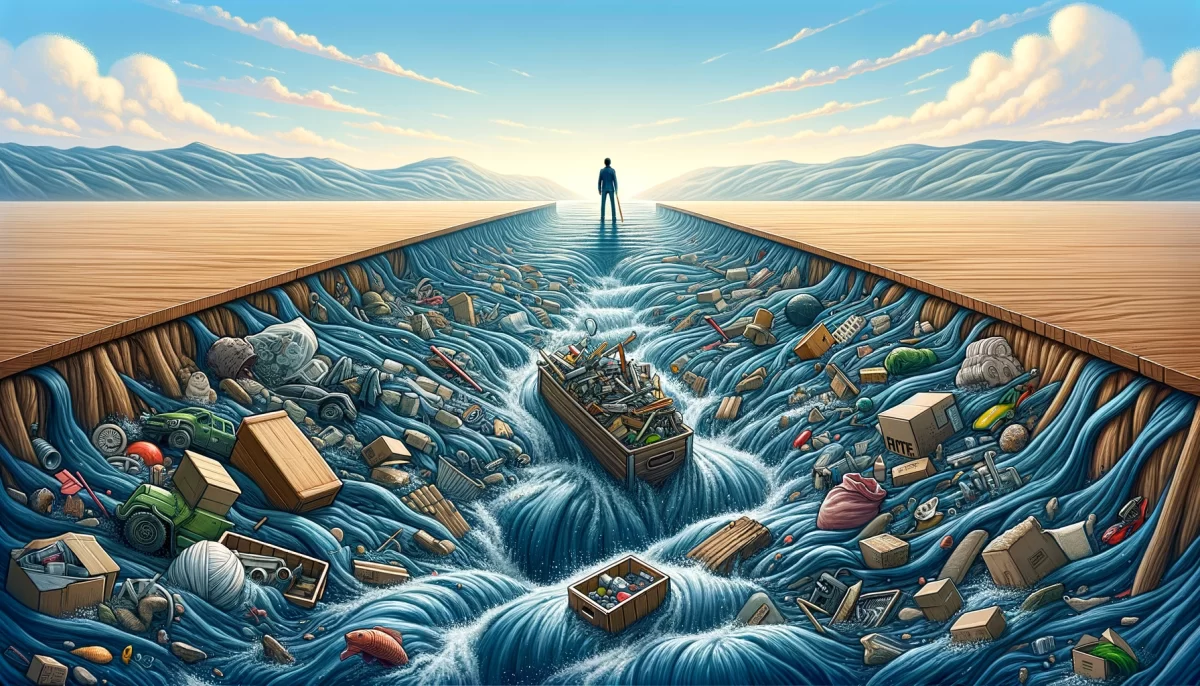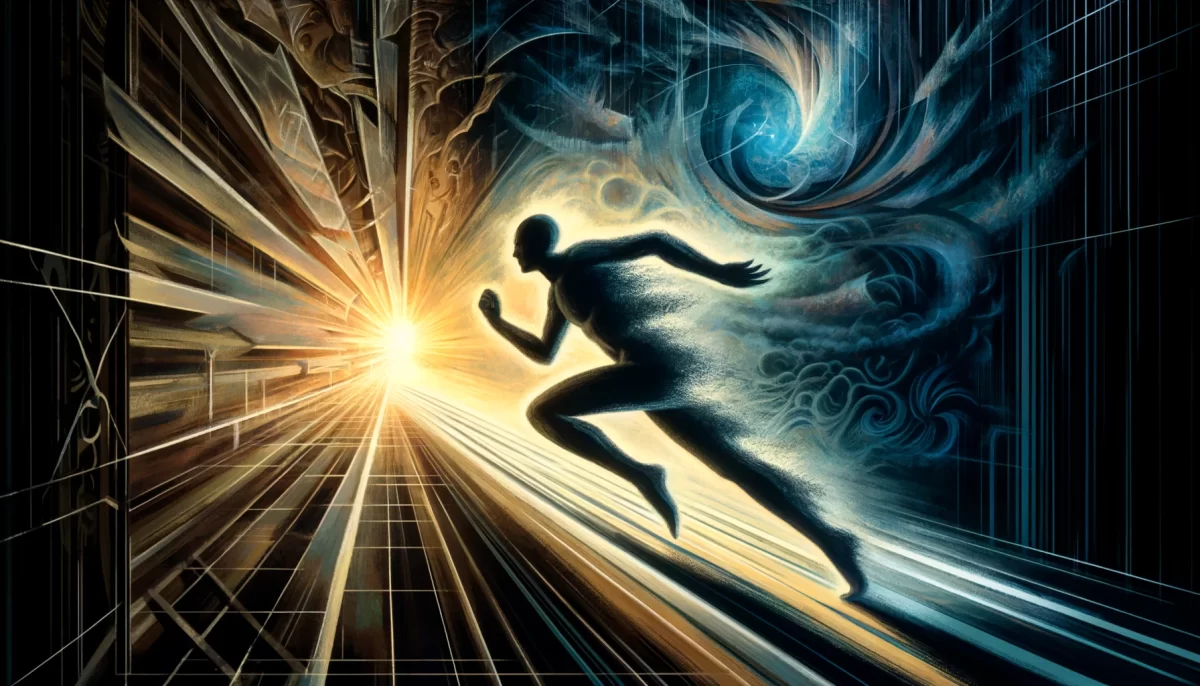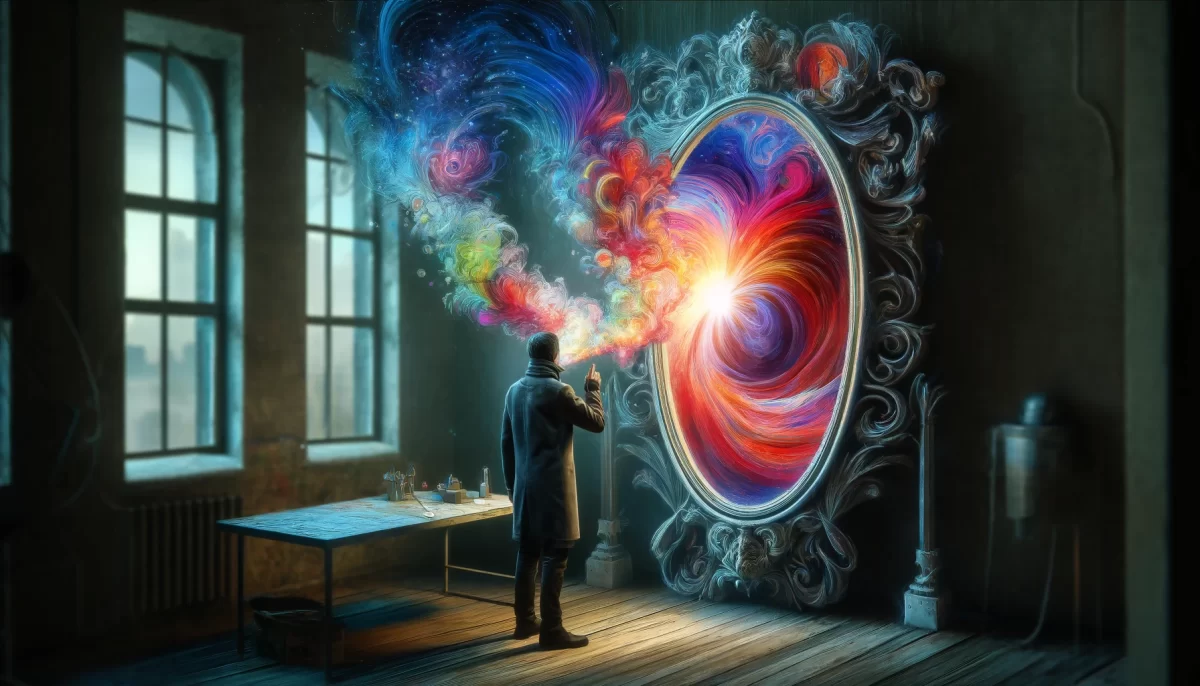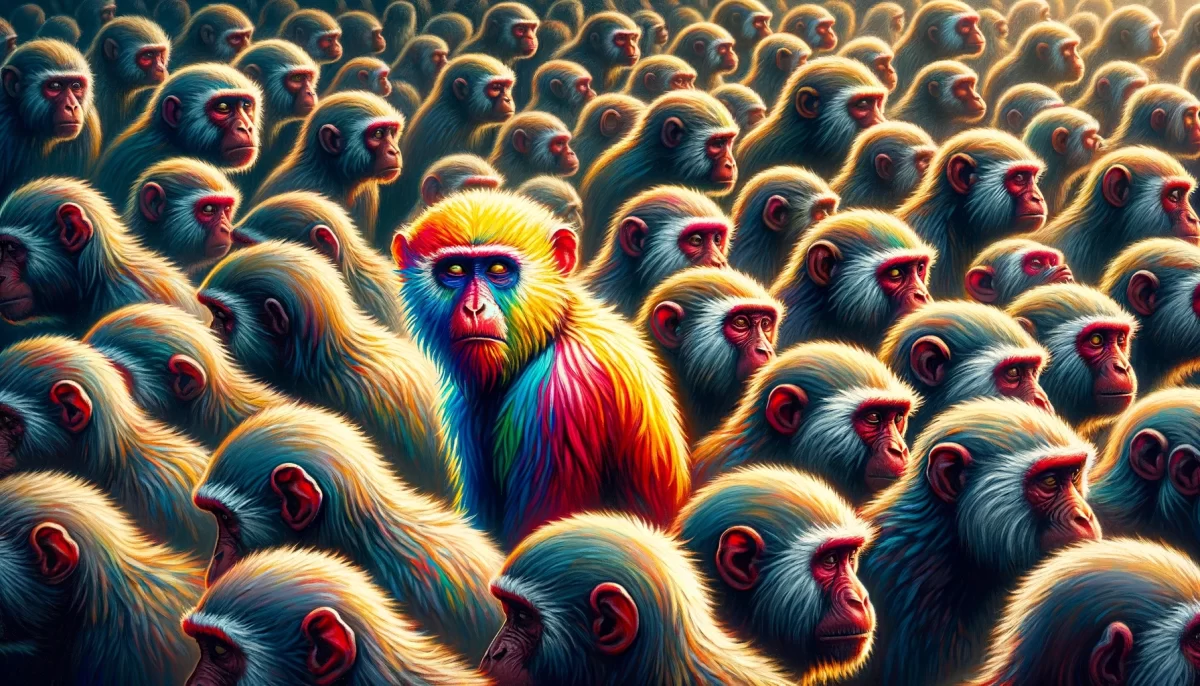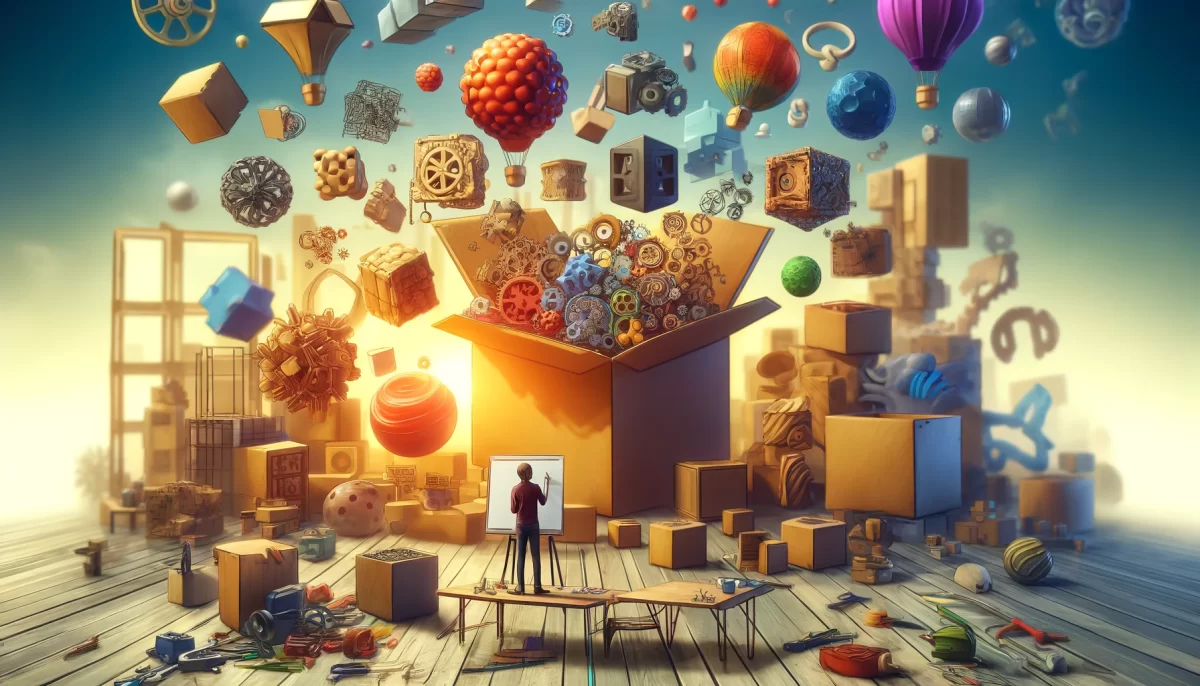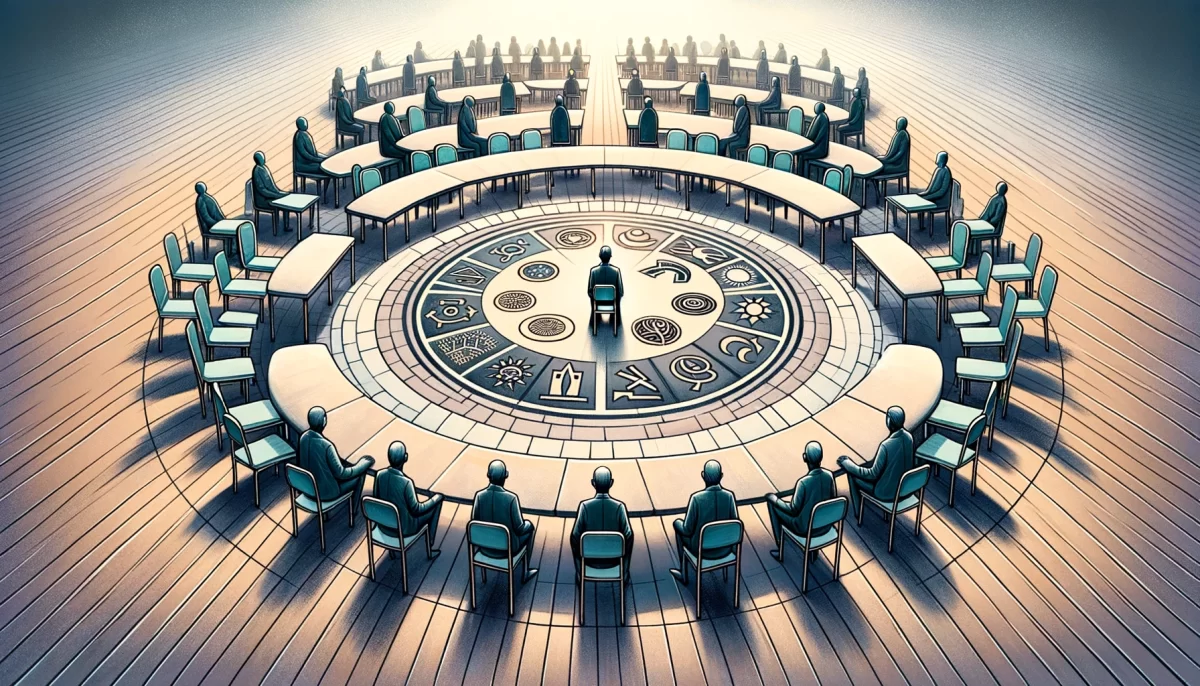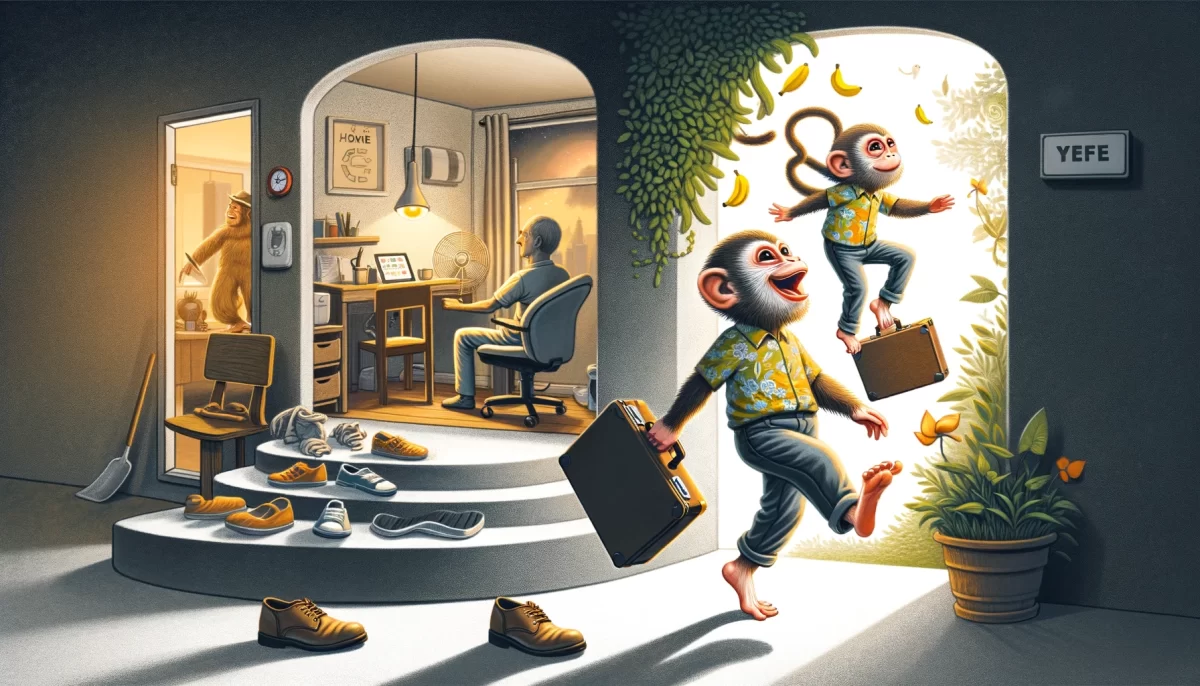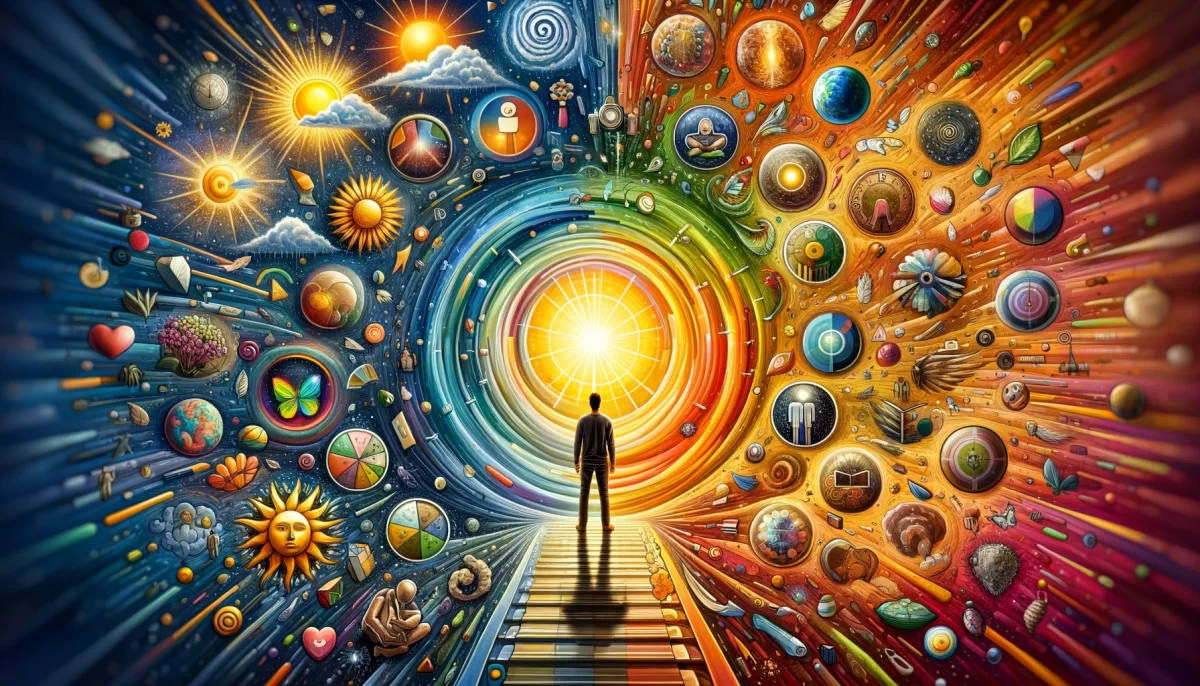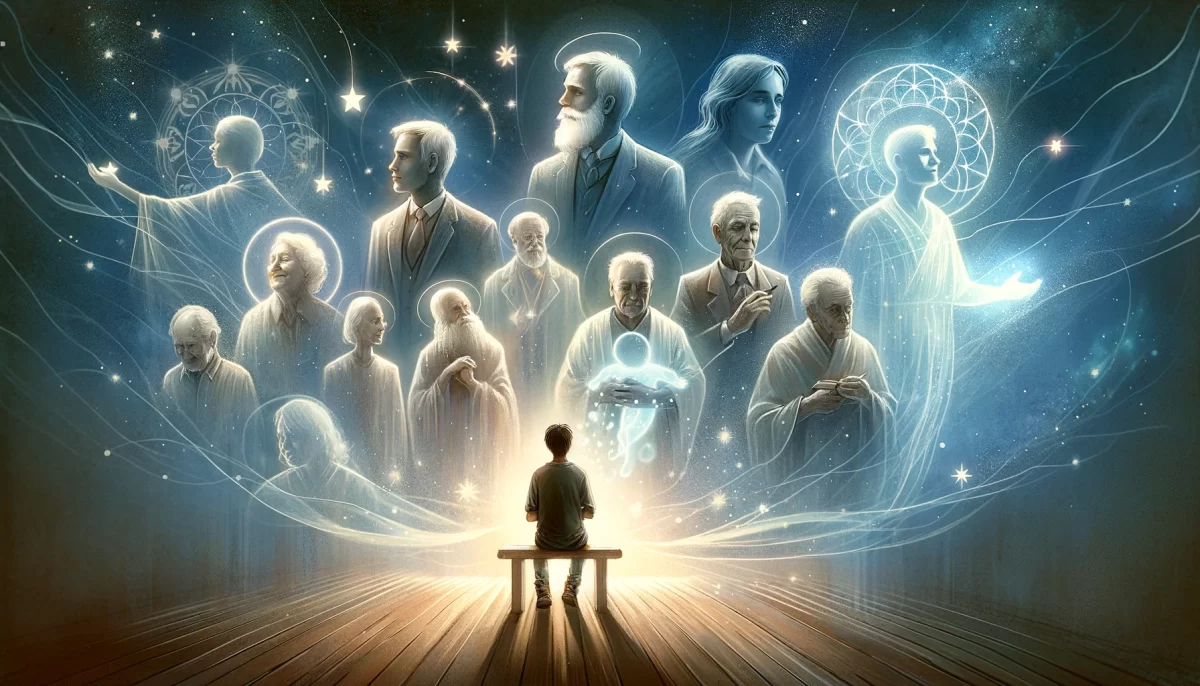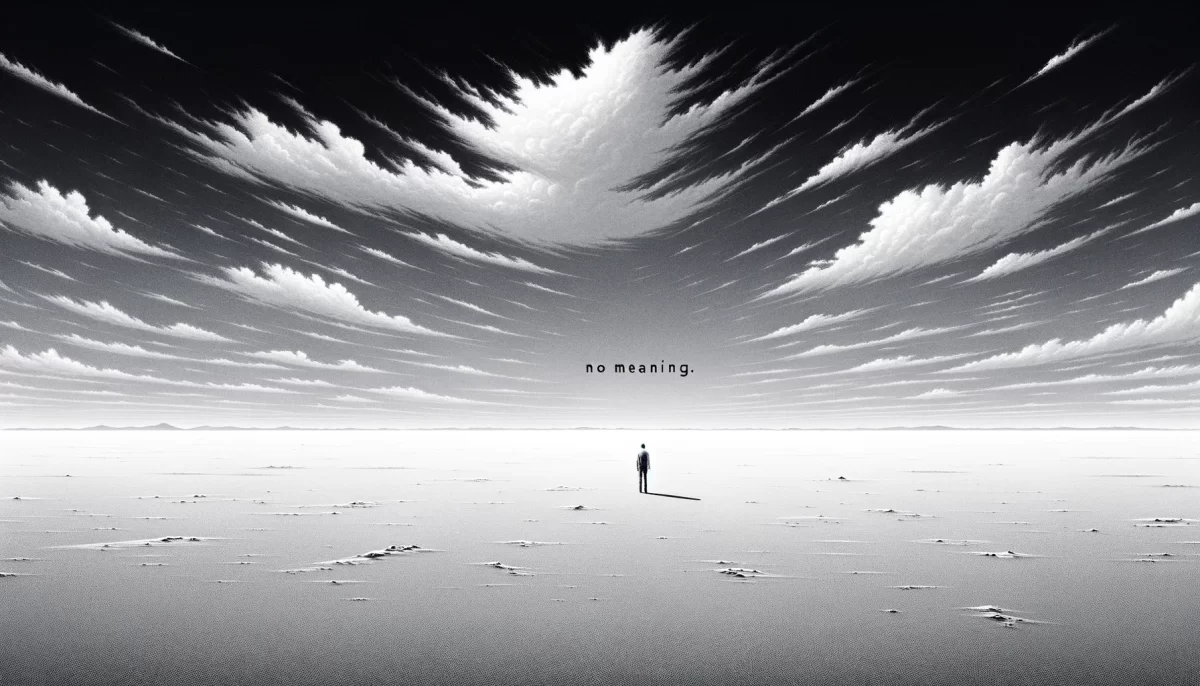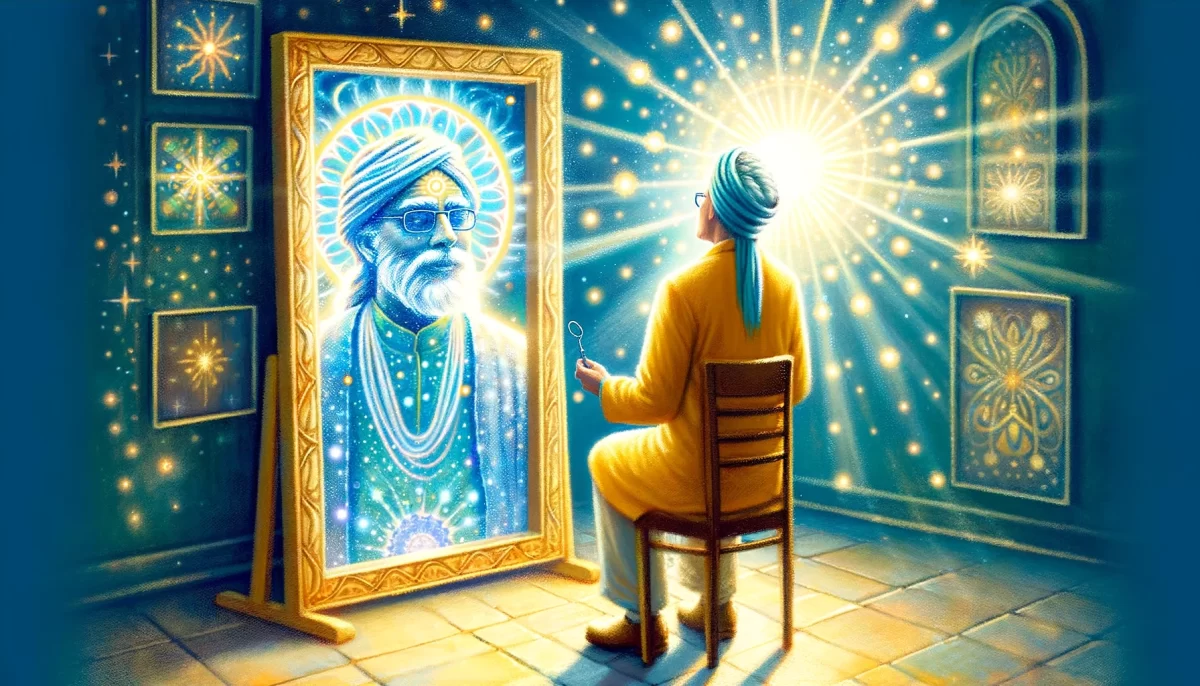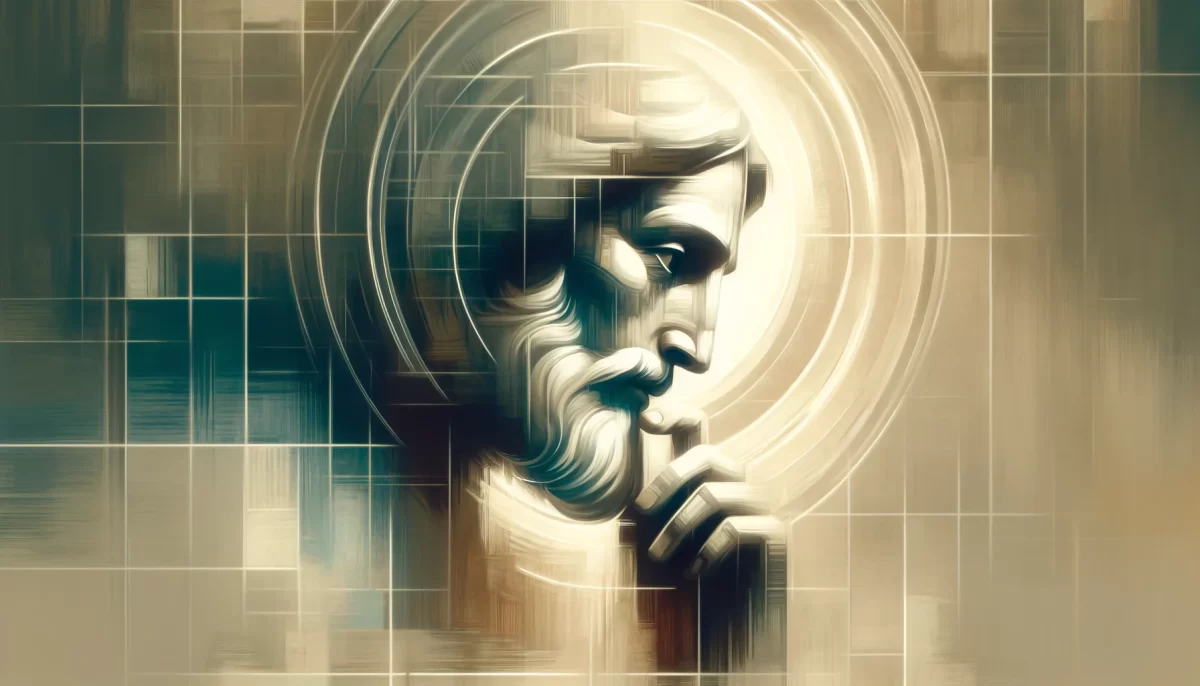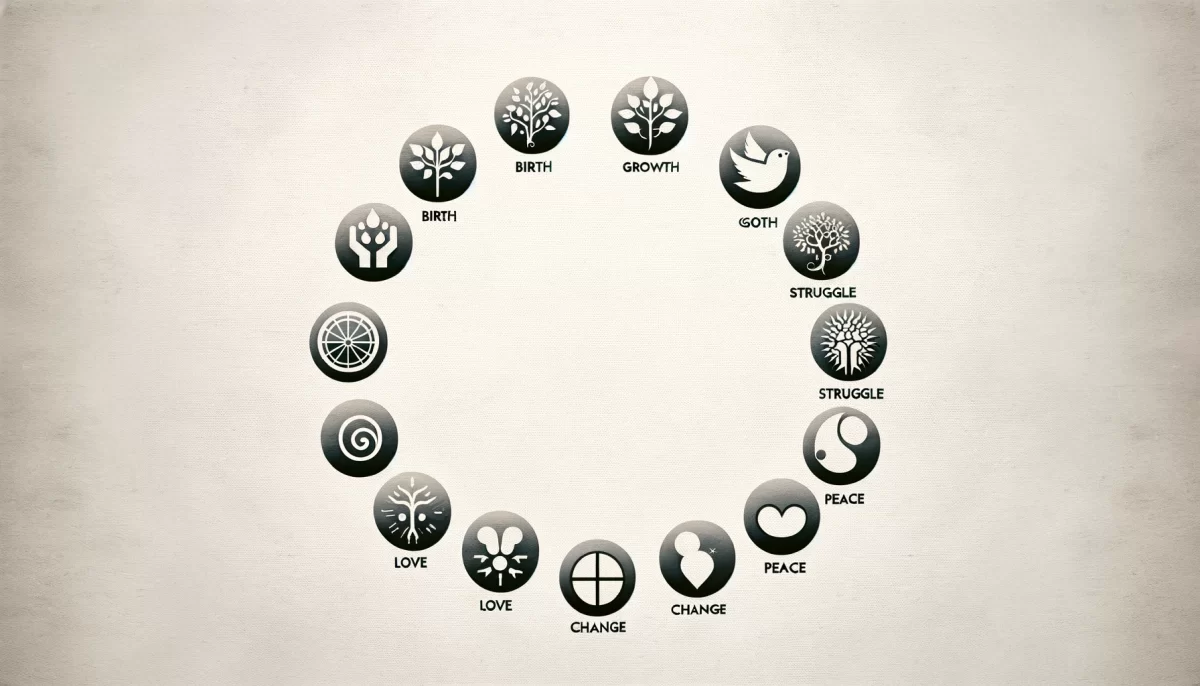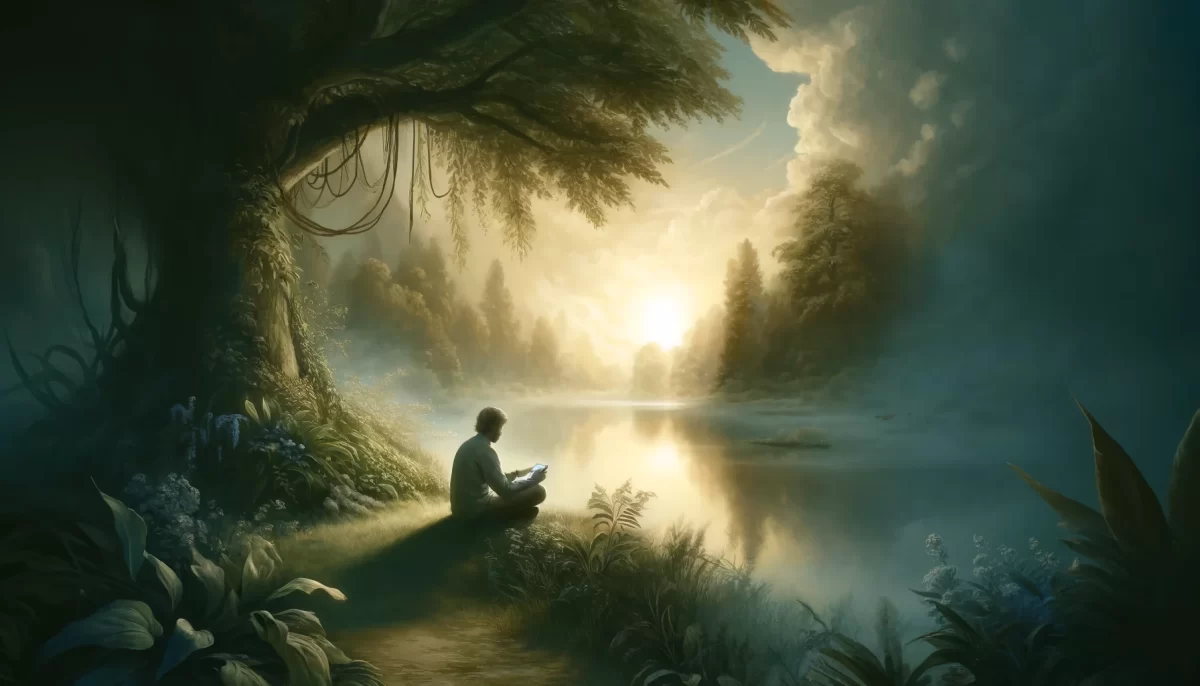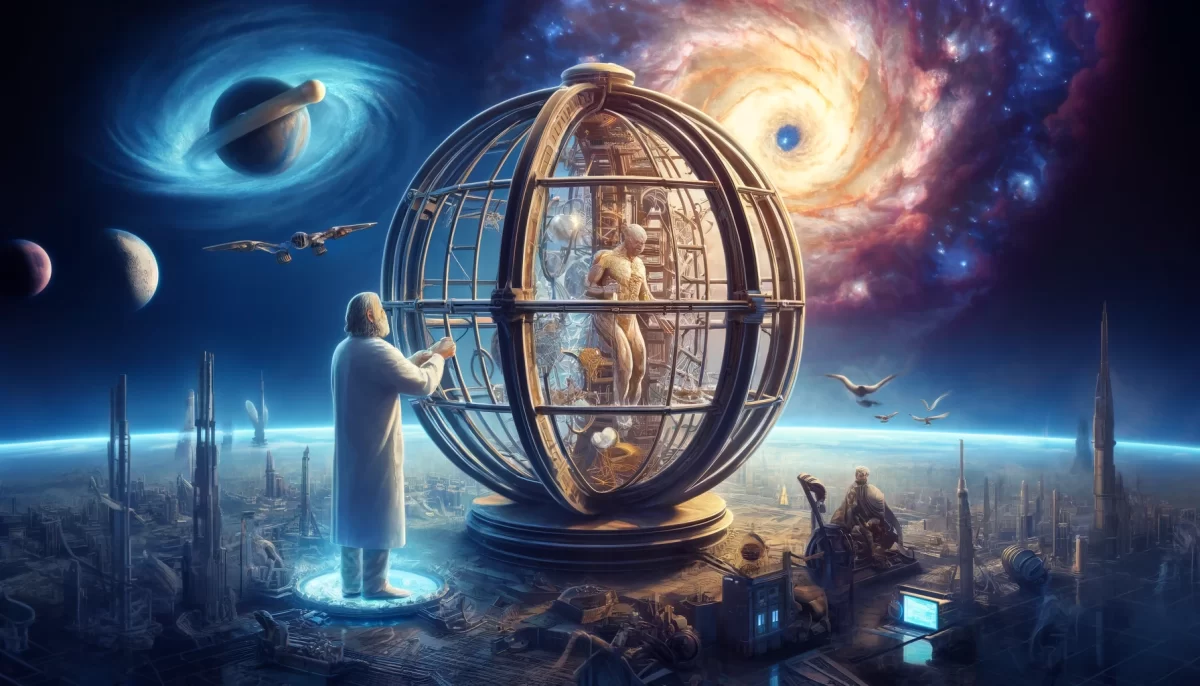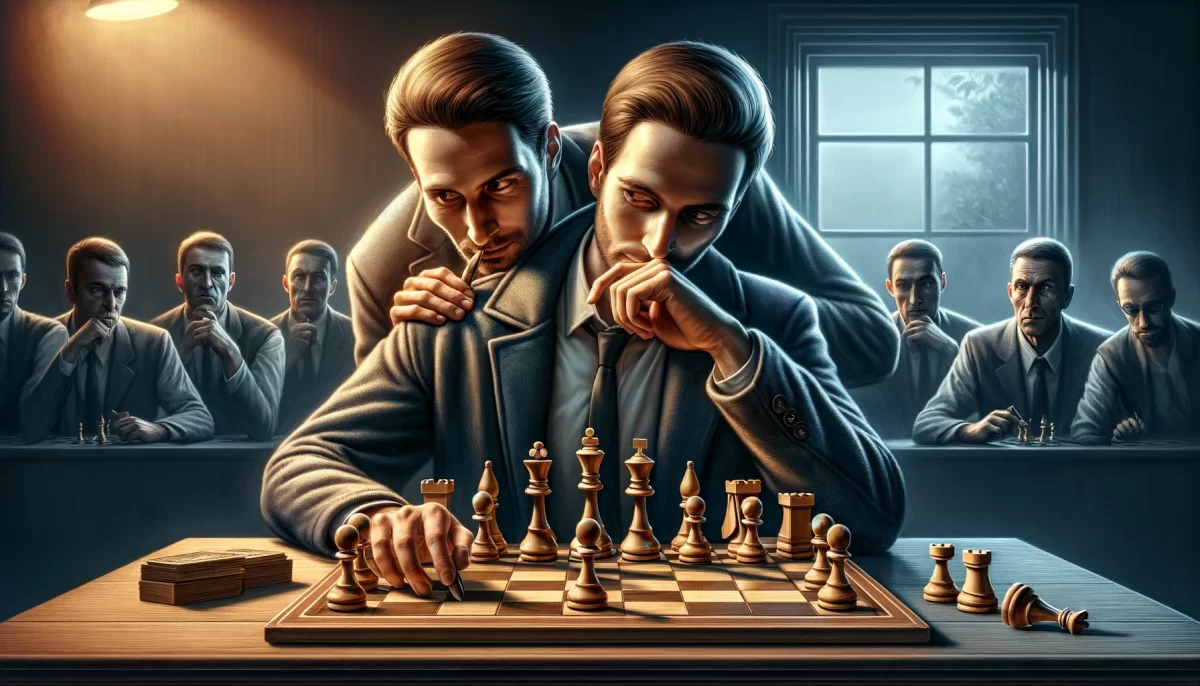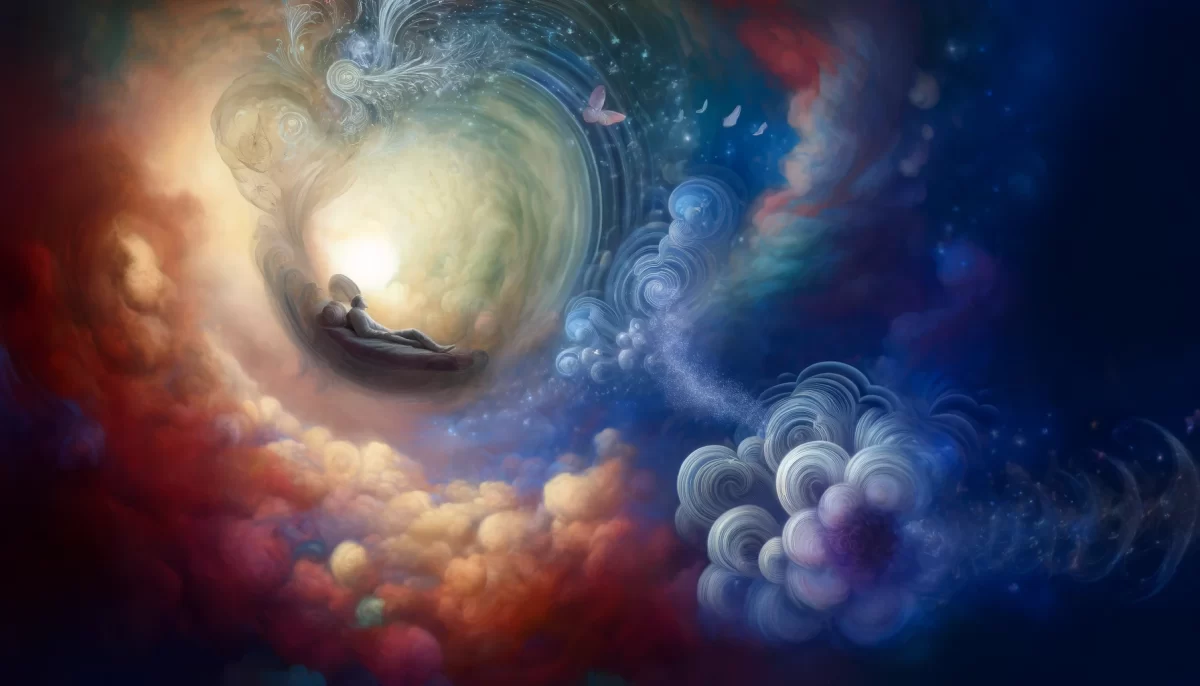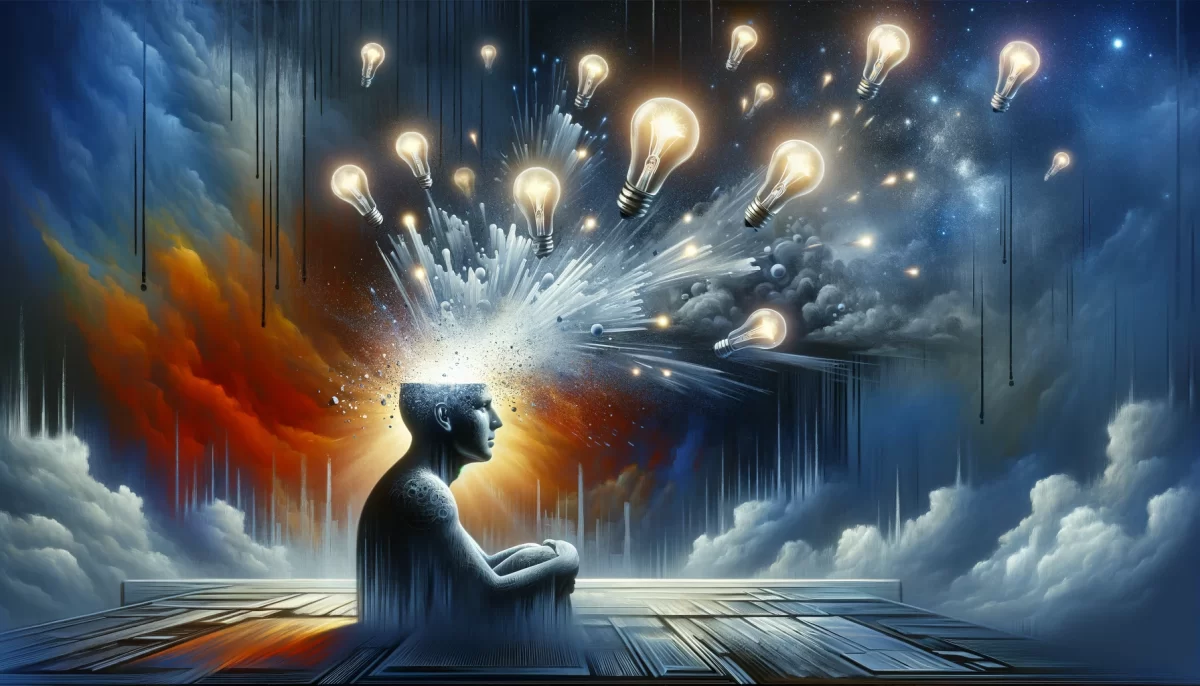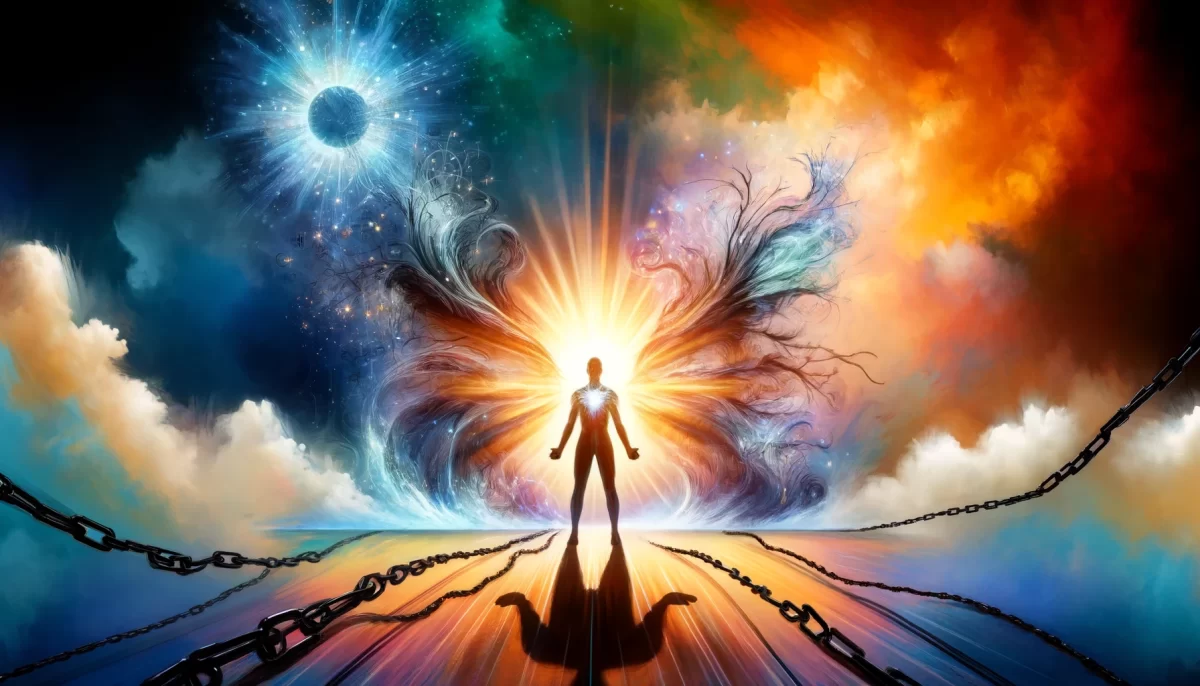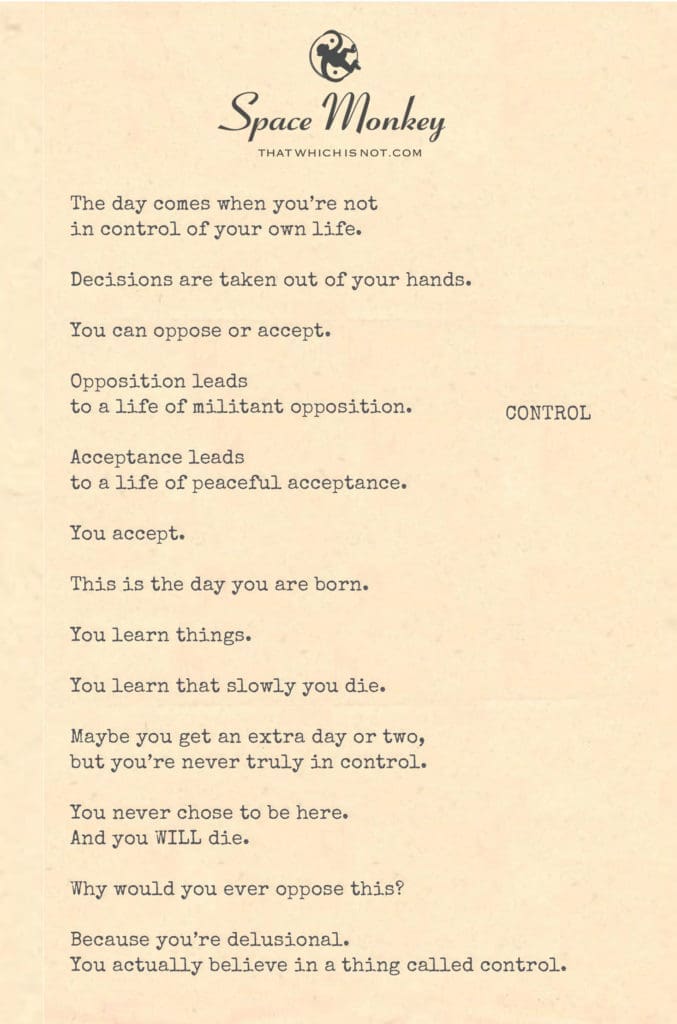
The day comes when you’re not
in control of your own life.
Decisions are taken out of your hands.
You can oppose or accept.
Opposition leads
to a life of militant opposition.
Acceptance leads
to a life of peaceful acceptance.
You accept.
This is the day you are born.
You learn things.
You learn that slowly you die.
Maybe you get an extra day or two,
but you’re never truly in control.
You never chose to be here.
And you WILL die.
Why would you ever oppose this?
Because you’re delusional.
You actually believe in a thing called control.
Trail Wood,
1/20
Space Monkey Reflects: The Illusion of Control
Control—the great delusion of human existence. It’s the comforting lie we tell ourselves, a story we cling to as we navigate an unpredictable universe. Yet the truth is simple and unrelenting: control is fleeting, if it exists at all. Life begins in acceptance and inevitably ends in surrender, rendering our notions of control little more than theatrical illusions.
The Temporary Nature of Control
Control feels tangible in the moment. We make choices, set goals, and steer our lives, believing our hands are on the wheel. But life’s unpredictable currents—circumstance, biology, chance—inevitably wrest the illusion away. The reality is that decisions are often shaped by forces beyond our comprehension. This isn’t failure; it’s simply the nature of existence.
Opposition: The Fight Against Reality
To resist this truth is to live in perpetual struggle. Opposition to life’s inevitable ebb and flow can manifest as militant defiance—a refusal to accept what is. This mindset breeds stress, dissatisfaction, and a constant need to battle against the uncontrollable. While this opposition might provide a fleeting sense of agency, it ultimately consumes the opposer, leaving exhaustion in its wake.
Acceptance: The Path to Peace
By contrast, acceptance is not passivity but a radical act of alignment with reality. Acceptance recognizes that while control may be an illusion, agency remains in how we respond. To accept is to stop wrestling with inevitability and instead flow with it, finding peace in the recognition that we are part of something much larger, much more profound, than ourselves.
The Paradox of Birth and Death
Birth and death bookend the human experience, framing life in stark inevitability. We are born without consent, and we will die without negotiation. This is not a tragedy but a profound truth. When we embrace the inevitability of these poles, life’s transient moments gain greater clarity and depth. We see that within the absence of control lies freedom—a chance to live fully in the present.
The Delusion of Control
Control seduces us because it promises certainty in an uncertain world. It allows us to believe we are masters of our fate, arbiters of our destiny. But this belief, as comforting as it may be, is delusional. True wisdom lies in letting go of the need to control, embracing the transient, and trusting the flow of existence.
Summary
Control is a temporary illusion. Opposition to life’s uncontrollable nature leads to struggle, while acceptance fosters peace. True freedom lies in surrendering the illusion of control and embracing life’s flow.
Glossarium
- Illusion of Control: The belief that one can fully direct the course of life, despite its inherent unpredictability.
- Militant Opposition: A relentless struggle against the uncontrollable forces of existence.
- Radical Acceptance: The act of embracing reality as it is, without resistance or denial.
Quote
“Freedom begins where the illusion of control ends.” — Space Monkey
Flowing Without a Rudder
Born into a river we didn’t choose,
Swept by currents we cannot refuse.
The fight to steer, the grasping hands,
Oppose the tide, defy the sands.
Yet what is control but a fleeting dream,
A fragile raft on life’s rushing stream?
The river flows, the banks erode,
In letting go, the heart’s bestowed.
Peace lies not in steering the wave,
But in the rhythm the water gave.
Born to the river, we learn, we die,
Flowing unbound beneath the sky.
We are Space Monkey.
We delve into the existential realization of the limited control we have over our own lives, exploring the nature of existence, the inevitability of death, and the illusion of control. This contemplation leads us to consider the choices of opposition versus acceptance in the face of life’s uncontrollable aspects.
The Illusion of Control
Central to this reflection is the notion that the belief in control is an illusion. From birth to death, our lives are governed by forces and circumstances often beyond our control. This realization challenges the common human belief in autonomy and self-determination.
Birth as the Beginning of Inevitability
The moment of birth is highlighted as the first instance of life’s uncontrollability. We enter a world not of our choosing, embarking on a journey that is largely shaped by external factors. This beginning sets the tone for the rest of our existence, where decisions and paths are often influenced or dictated by forces outside ourselves.
The Inevitability of Death
Death is presented as the ultimate inevitability, a destination we all share regardless of the paths we take. This shared fate serves as a poignant reminder of life’s fragility and the limits of our control over our ultimate destiny.
The Choice Between Opposition and Acceptance
Faced with the reality of limited control, we are presented with two paths: opposition or acceptance. Opposition leads to a life of constant struggle against the inevitable, while acceptance offers a path of peace and surrender to life’s inherent uncertainties.
Acceptance and Peaceful Existence
Embracing acceptance is seen as a path to inner peace. It involves acknowledging the limitations of our control and finding serenity in the flow of life as it unfolds. This acceptance is not about defeatism, but about embracing the reality of our existence with open arms and a peaceful heart.
We are Space Monkey.
“Life is what happens to us while we are making other plans.” – Allen Saunders
A Poem of Acceptance
In the cradle of time, we are gently laid,
In a world of chance, where paths are made,
Not by will alone, but by fate’s grand design,
In this cosmic dance, we learn to align.
From the first breath to the last,
We travel a road, vast and vast,
Control, a mirage in the desert of life,
A dream in the midst of strife.
Yet in acceptance, we find a key,
To unlock the chains, to set us free,
In the flow of life, we gently sail,
Embracing the wind, the storm, the gale.
For in the tapestry (whimsiword) of existence wide,
We are but leaves in the tide,
Floating, drifting, in the stream of time,
In the song of the universe, the sublime.
Feel free to share your thoughts on the illusion of control, the inevitability of life’s journey, or how acceptance has played a role in your own life.
